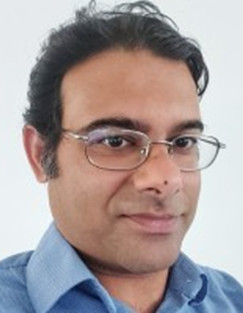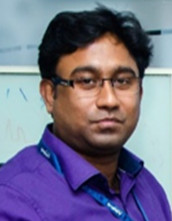Description
Sensing technologies play an important role in realizing smart, energy-efficient and sustainable buildings. Sensors of different modalities are part of building infrastructures, like lighting, HVAC and surveillance, that are increasingly becoming connected. Data from such multi-modal IoT sensors can be used to realize new and improved building applications using AI approaches involving advanced signal processing and machine learning. In this tutorial, we will cover the following topics: – IoT building applications like lighting/HVAC controls, system monitoring and diagnostics, space management, and location-based services; – Sensor system architectures; – Sensor data analytics and machine learning based sensor data processing techniques.
Chairs
Dr. Ashish Pandharipande, NXP Semiconductors

Ashish Pandharipande (Senior Member, IEEE) received the M.S. degrees in electrical and computer engineering, and mathematics and the Ph.D. degree in electrical and computer engineering from the University of Iowa, Iowa City, in 2000, 2001, and 2002, respectively. Since 2002, he has been a Postdoctoral Researcher with the University of Florida, a Senior Researcher with the Samsung Advanced Institute of Technology, a Senior Scientist with Philips Research, and lead R&D with Signify. He has held visiting positions at AT&T Laboratories, NJ, USA, and the Department of Electrical Communication Engineering, Indian Institute of Science, Bengaluru, India. He is currently Lead Systems Engineer at NXP Semiconductors, Eindhoven, The Netherlands. He is a Senior Editor of IEEE Signal Processing Letters, a Topical Area Editor of IEEE Sensors Journal, and an Associate Editor of IEEE Journal of Biomedical and Health Informatics. His research interests are in sensing, networked controls, data analytics, machine learning and system applications. He has more than 190 scientific publications in IEEE conferences and journals, and about 100 patents/filings, covering areas like IoT lighting, advanced sensing and control, data analytics and data-enabled services, indoor positioning and location-based services, machine learning, and cognitive wireless systems.
Dr. Avik Santra, Infineon Technologies

Avik Santra (Senior Member, IEEE) received the M.S. (Hons.) degree in signal processing from the Indian Institute of Science, Bengaluru and Ph.D. degree in electrical, electronics and informatics from Friedrich-Alexander-Universität Erlangen-Nürnberg. He is currently leading research and development of signal processing and deep learning algorithm/solutions of radar and depth sensors at Infineon, Neubiberg. Earlier in his career, he has worked as a System Engineer for LTE/4G modem at Broadcom Communications, and also has worked as a Research Engineer developing cognitive radars at Airbus. He is the co-author of the book titled “Deep Learning Applications of Short-Range Radars” published by Artech House. He has filed over 60 patents and published more than 50 research articles related to various topics of radar waveform design, radar signal processing and radar machine/deep learning topics. He was a recipient of several outstanding reviewer awards. He is a reviewer at various IEEE and Elsevier journals.


